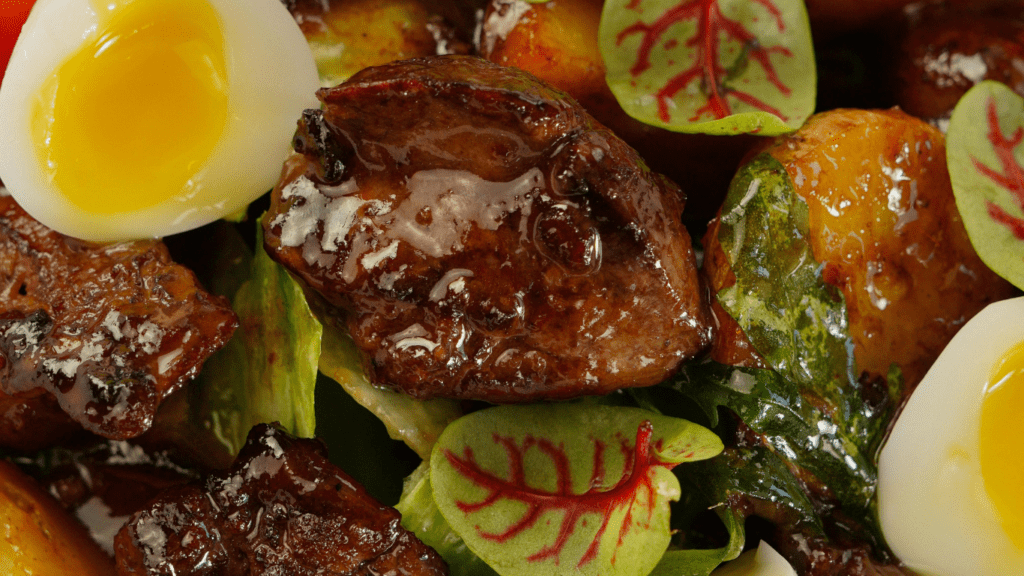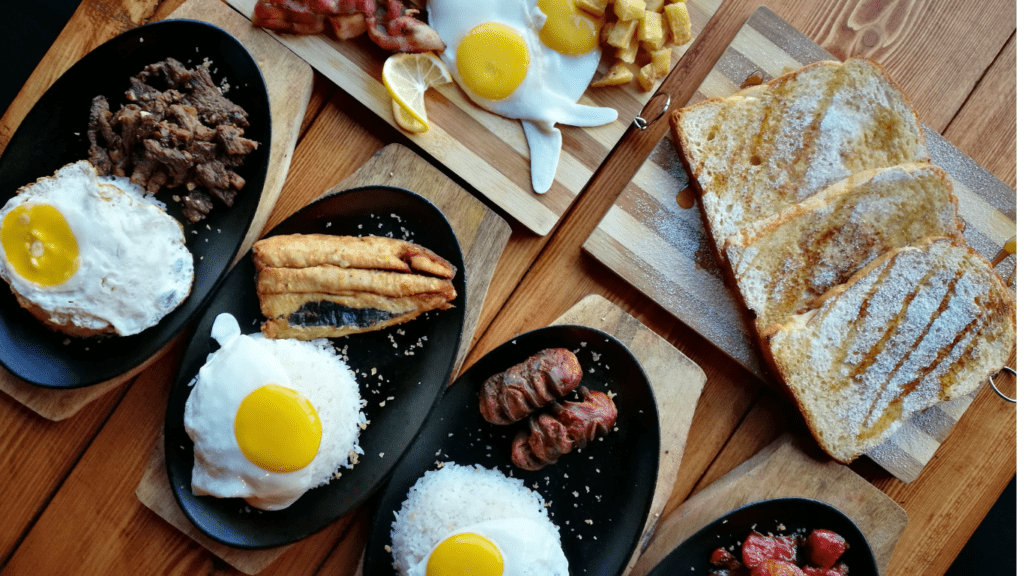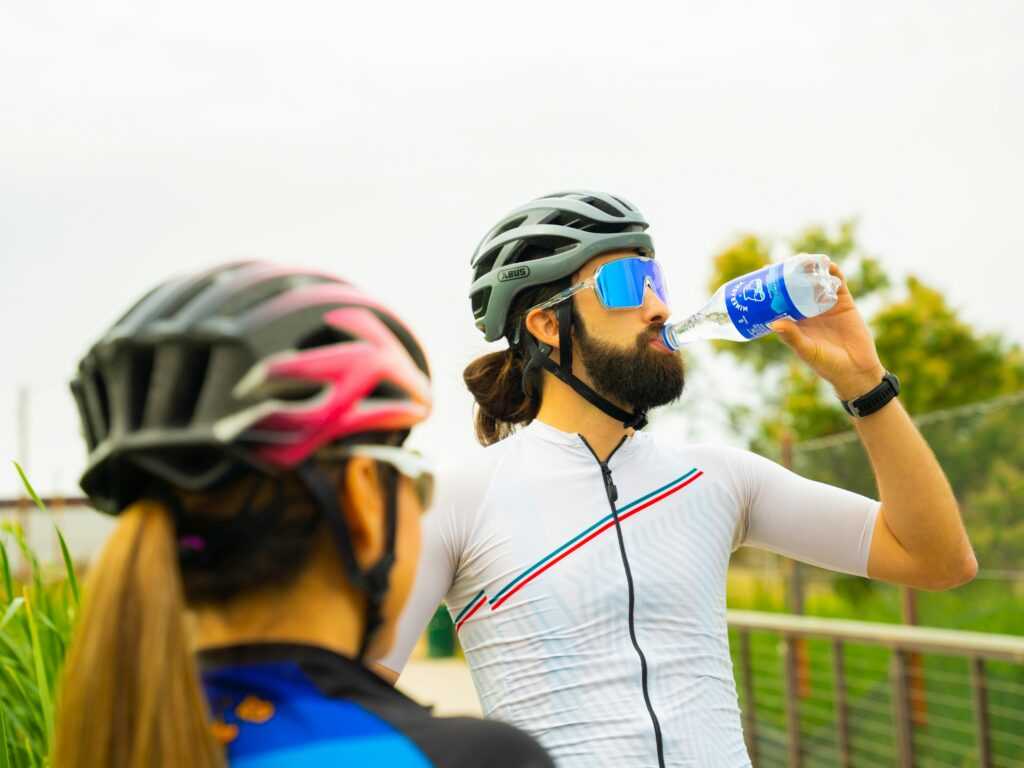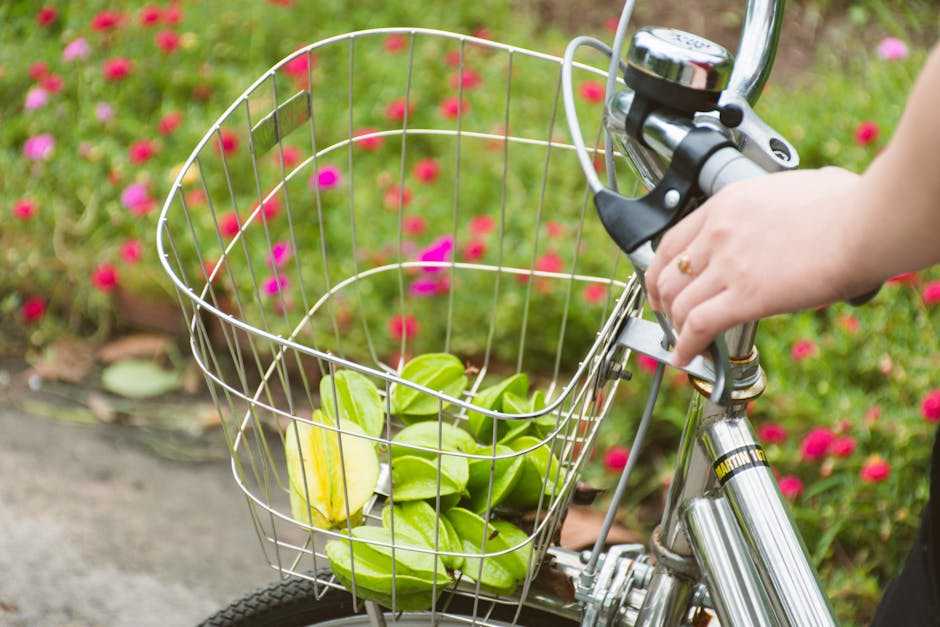Understanding the Nutritional Needs of Cyclists
Cyclists require a well-rounded diet to maintain energy levels, support muscle recovery, and sustain overall performance. Each nutrient plays a vital role in achieving these goals.
Importance of Carbohydrates
Carbohydrates serve as the primary energy source for cyclists. They break down into glucose, which fuels muscle cells during rides.
Consuming complex carbs like;
- oats
- whole grains
- fruits
provides a sustained energy supply. When planning breakfast, include items like whole wheat toast with banana or a bowl of oatmeal to ensure adequate carb intake.
The Role of Proteins and Fats
Proteins help repair and build muscle tissue after cycling. Lean proteins such as:
- eggs
- Greek yogurt
- lean meats support recovery
Including fats in the diet offers a slower-releasing energy source and aids in vitamin absorption.
Opt for healthy fats from sources like avocados, nuts, and seeds. A balanced breakfast might include scrambled eggs with avocado or Greek yogurt with nuts.
Hydration for Endurance
Staying hydrated is crucial for maintaining endurance during long rides. Dehydration impairs performance and can lead to fatigue. Start the day with a glass of water and include hydrating foods like watermelon or oranges in your breakfast.
Additionally, drinking electrolyte-rich fluids helps replenish lost minerals during intense workouts.
By understanding and implementing these nutritional guidelines, cyclists can fuel their bodies effectively for optimal performance and recovery.
Top Healthy Breakfast Ideas for Cyclists

Fueling up with the right breakfast can enhance cycling performance. Let’s explore some top breakfast options.
Quick and Nutritious Smoothies
Smoothies offer a quick, energy-dense breakfast option ideal for cyclists. My favorite includes a blend of bananas, berries, and spinach for carbs, with Greek yogurt for protein. Add chia seeds for healthy fats.
Another great combination is almond milk, oats, and a scoop of protein powder. Prepare the night before to save time.
Oatmeal Variations for Energy
Oatmeal provides sustained energy due to its complex carbs. I often add fruits like blueberries and bananas to boost vitamin intake. Mixing in nuts such as almonds or walnuts adds protein and healthy fats.
Another variation is overnight oats with chia seeds and almond milk. These variations ensure a balanced diet.
Protein-Packed Pancakes
Protein is crucial for muscle repair, making protein-packed pancakes an excellent option. I use whole-grain flour and mix in protein powder.
Topping with almond butter or Greek yogurt adds extra protein and healthy fats. For variety, try adding blueberries or banana slices to the batter. These pancakes support muscle recovery while providing necessary energy.
Tips for Pre-Ride Meal Timing
Pre-ride meal timing directly impacts energy levels and overall performance. I’ll delve into the best time to eat and what to avoid.
Best Time to Eat Before Cycling
Consuming a balanced meal 2-3 hours before cycling can offer sustained energy. Foods rich in complex carbs like whole grain bread, brown rice, and oatmeal provide a steady release of glucose.
Proteins from sources such as lean meat, beans, and dairy products help in muscle repair and endurance. Healthy fats, like those in nuts and seeds, support prolonged activities.
If a full meal isn’t possible, having a light snack containing carbs and a small amount of protein 30-60 minutes before riding can suffice.
What to Avoid Eating Before a Ride
Avoid high-fat and high-fiber foods right before a ride since they can cause gastrointestinal distress. Foods such as fried items, beans, and cruciferous vegetables (e.g., broccoli) may lead to discomfort and bloating.
Steering clear of sugary snacks, like candy and pastries, prevents energy crashes caused by rapid spikes in blood sugar. Ensuring that meals are light and easily digestible reduces the risk of stomach issues during the ride.
Supplements and Add-Ons for Enhanced Performance
Cyclists can benefit from supplements and natural boosters to enhance performance and recovery. These additions complement a balanced diet and help maintain consistent energy levels during rides.
Recommended Supplements
Using appropriate supplements optimizes cycling performance. Some essential ones include:
- Electrolyte Tablets: These help maintain hydration by replenishing lost electrolytes, reducing the risk of cramps and fatigue during long rides.
- Protein Powders: Consuming protein powders aids muscle recovery and repairs post-ride. Whey and plant-based options are effective.
- Beta-Alanine: Increases muscle carnosine levels, enhancing endurance and reducing fatigue in high-intensity activities.
- Creatine: Enhances short burst performance and strength by increasing phosphocreatine stores in muscles, which is beneficial during intense efforts.
Natural Boosters
Natural boosters provide a nutritional edge without synthetic additives. Consider these options:
- Beetroot Juice: Rich in nitrates, beetroot juice improves oxygen efficiency and stamina, making it an ideal pre-ride drink.
- Caffeine: A natural stimulant, caffeine enhances alertness and reduces the perception of effort during rides. Coffee or green tea works well.
- Tart Cherry Juice: Contains antioxidants that reduce muscle soreness and inflammation, aiding recovery after extensive rides.
- Coconut Water: A natural source of electrolytes, coconut water supports hydration and replenishes electrolytes lost through sweat.
Incorporating these supplements and natural boosters aids in optimizing cycling performance, ensuring sustained energy levels, and promoting quicker recovery.

 I’m Brendamee McCartyierr, and as the founder of Cycle Smooth Ride Long, I'm thrilled to bring you the ultimate resource for all things cycling. Whether you're a seasoned rider or just starting on your cycling journey, our mission is to support your passion for two wheels with trusted advice, insightful reviews, and expert tips.
Cycling is more than just a hobby—it's a lifestyle that promotes health, freedom, and adventure. At Cycle Smooth Ride Long, we’re committed to making your ride smoother, longer, and more enjoyable by providing you with the latest in cycling news, nutrition advice, fitness tips, and gear reviews. We also cater to beginners, offering comprehensive guides to help you get started and build confidence on the road.
I’m Brendamee McCartyierr, and as the founder of Cycle Smooth Ride Long, I'm thrilled to bring you the ultimate resource for all things cycling. Whether you're a seasoned rider or just starting on your cycling journey, our mission is to support your passion for two wheels with trusted advice, insightful reviews, and expert tips.
Cycling is more than just a hobby—it's a lifestyle that promotes health, freedom, and adventure. At Cycle Smooth Ride Long, we’re committed to making your ride smoother, longer, and more enjoyable by providing you with the latest in cycling news, nutrition advice, fitness tips, and gear reviews. We also cater to beginners, offering comprehensive guides to help you get started and build confidence on the road.
